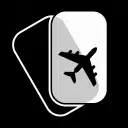Flight Accessibility Resources
Thanks to modern technology, people who live with a disability have the ability to enjoy many of the activities that people without a disability take for granted. One of these is the freedom to get on a plane and travel across the country or around the world. Whether flying on a private jet or a commercial airline, people with visual or mobility impairments or any other form of disability can take a flight without fear of discrimination. Disabled travelers will, however, need to take special steps to prevent inconveniences and to protect their safety. Before traveling by plane, one must understand what potential challenges to expect and how to stay safe and healthy during their trip.
Traveling With Medication and Assistive Equipment
Many disabled individuals require the use of assistive equipment or devices such as wheelchairs, oxygen tanks, or other portable devices. As a result, travelers will need to ensure that the airline is aware of this need and accommodations are made. To avoid unexpected delays or problems, disabled passengers should contact the airline they will be traveling on to let them know what type of equipment they have and, in the case of a wheelchair, whether it is manual or powered. This distinction is important, as this equipment will need to be properly stowed on the plane. If a passenger is using a powered wheelchair or scooter, the airlines will also need to know what type of battery it uses. Wet cell batteries are spillable batteries and must be disconnected during the flight. Dry and gel cell batteries are considered non-spillable and can remain connected. If you are uncertain about what type of battery the wheelchair uses, consult the manual or the manufacturer directly. In addition to assistive equipment, many disabled people need some form of medication. Before getting on an airplane to travel from or to the U.S., it is necessary to know what rules and restrictions govern traveling with medication. Ideally, if traveling internationally, one should contact the country that they are visiting to determine the legality of the prescription medications they are bringing with them. This is important, as some medications may be illegal in certain countries and not others. Disabled travelers should also carry documentation from their physician regarding their condition and about the prescription, including its name and the dosage. Generally, one should carry their medications in the prescription bottles they came in, leaving the printed labels intact. It is best to carry up to a 90-day supply of pills to avoid running out. Liquid medications, however, may be subject to restrictions governing how much can be carried on versus stowed in checked baggage. Both liquids and solids may be transported in checked baggage or in carry-on bags; however, officials at the airport must be made aware of the presence of liquid medications.
- Disabilities and Medical Conditions
- Handling of Mobility Aids and Assistive Devices
- Foreign Travel for Disabled People: Wheelchairs and Other Equipment
- Medication When Traveling Internationally
- Fox News: Tips for Travelers With Disabilities
- How to Take Prescription Drugs on International Flights
- Traveling With Prescription Medications
- Finding an Accessible Room
Safety and Health Tips for Travelers
While traveling, safety and health are especially important considerations for people with disabilities. When preparing for a trip, it’s important to consult a doctor to ensure that there are no current health concerns that could be a problem during the trip. The doctor can recommend vaccines, help make arrangements for care if necessary, and provide valuable advice on how to avoid diseases or illness. One should also check with their health insurance carrier if traveling abroad to ensure that they have international coverage. As with all airline passengers, people with disabilities will need to go through security screening as a general flight safety precaution. Often, there is a special screening line for individuals who use assistive devices. Although inconvenient, this is an important step toward ensuring safety while traveling. For the safety and comfort of disabled passengers, a jet with 30 seats or more must be able to provide these travelers with an aisle seat that has a removable armrest for easier access.
- Traveling With Disabilities (PDF)
- Tips for Travelers With Disabilities
- Crime Prevention Tips for the Disabled: Travel Safety
- 20 Tips for Traveling With a Physical Disability (PDF)
- Seven Tips for Travelers With Disabilities
- Traveling With Disabilities
- Traveling With a Disability: See the World and Prove What’s Possible
- Travel: Tips for People With Disabilities
Traveling Tips
There are some basic tips that can make traveling much smoother and problem-free. While many people with disabilities can move about independently, traveling by plane may still be a challenge for some. Traveling with a companion can provide a helpful extra hand in certain situations. One should also call the airlines ahead of time to determine what type of assistance they provide for people with disabilities. Making advance arrangements for transportation to and from the airport is also a helpful tip, as it prevents unnecessary frustration and delays upon arrival or departure. It is also useful to anticipate extra time spent at security checks. To avoid any sense of anxiousness, arrive an hour earlier than recommended. Another tip that can make flying more comfortable is to avoid long flights in favor of shorter connecting flights. When taking connecting flights, choose those that allow an hour or more between them to ensure that there is enough time to use the bathroom and move between gates. In addition to time spent traveling, it is also helpful to thoroughly research the area that is being visited to make plans for where to visit, how to get there, and what places may be difficult or challenging for people with disabilities.
- Major Airline Travel Tips for Travelers With Disabilities
- FAA Fact Sheet on Air Travel by People With Disabilities
- Traveling With a Disability or Medical Condition (PDF)
- Traveling With a Disability: A Complete Guide
- Information for the Air Traveler With a Disability (PDF)
- Travelling With Disabilities
- Disability Travel: Resources and Tips
- Travelers With Disabilities
- Tips for Physically Challenged Travelers
Are you ready to book your Dallas and Houston charter flight yet?
Our friendly, expert air charter agents are here to answer questions or start your quote today. Don`t wait, call now and we'll get you on your way to your destination!
Call 888-593-9066










